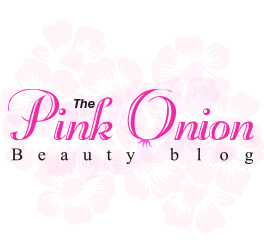In recent years, there has been a growing awareness of the environmental impact of the fashion industry, leading to a shift towards more sustainable and eco-friendly practices. One significant aspect of this movement is the increasing use of eco-friendly fabrics, which are made from renewable resources, require less water and energy to produce, and biodegrade more easily than traditional fabrics. These eco-friendly fabrics are not only better for the environment but also offer consumers a guilt-free way to indulge in fashion. This article explores the role of eco-friendly fabrics in revolutionizing the fashion industry and highlights their benefits for both consumers and the planet.
Organic Cotton: A Sustainable Staple
Organic cotton is one of the most popular eco-friendly fabrics in the fashion industry, prized for its softness, durability, and sustainability. Unlike conventional cotton, which is grown using synthetic pesticides and fertilizers, organic cotton is cultivated without harmful chemicals, making it safer for farmers, consumers, and the environment. By choosing clothing made from organic cotton, consumers can reduce their carbon footprint and support sustainable farming practices that promote soil health and biodiversity.
Tencel: A Versatile Plant-Based Fiber
Tencel, also known as lyocell, is a versatile plant-based fiber made from sustainably sourced wood pulp, typically from eucalyptus or bamboo trees. Tencel production involves a closed-loop process that recycles water and solvents, minimizing waste and pollution. This eco-friendly fabric is prized for its silky smooth texture, breathability, and moisture-wicking properties, making it ideal for everything from activewear and lingerie to dresses and denim.
Hemp: A Sustainable Super Fiber
Hemp is a versatile and eco-friendly fiber that has been used for centuries to make clothing, textiles, and other products. Unlike cotton, hemp requires minimal water, pesticides, and fertilizers to grow, making it a more sustainable option for clothing production. Hemp fabric is known for its strength, durability, and breathability, making it well-suited for a wide range of clothing and accessories.
Recycled Polyester: Closing the Loop
Recycled polyester, also known as rPET, is made from post-consumer plastic bottles that are melted down and spun into yarn. This innovative fabric helps reduce plastic waste in landfills and oceans while conserving energy and resources compared to virgin polyester production. Recycled polyester offers the same performance and versatility as traditional polyester but with a significantly lower environmental footprint, making it a popular choice for sportswear, outerwear, and everyday clothing.
Bamboo: A Sustainable and Luxurious Option
Bamboo fabric is made from the pulp of bamboo plants, which grow quickly and require minimal water and pesticides to thrive. Bamboo fabric is naturally antimicrobial, moisture-wicking, and breathable, making it an excellent choice for activewear, loungewear, and underwear. Additionally, bamboo fabric has a luxurious silky texture that feels soft and smooth against the skin, making it a popular choice for eco-conscious consumers who prioritize comfort and sustainability.
In conclusion, eco-friendly fabrics are transforming the fashion industry by offering sustainable alternatives to traditional materials that are better for the environment and consumers alike. From organic cotton and Tencel to hemp, recycled polyester, and bamboo, these eco-friendly fabrics are revolutionizing the way clothing is made and consumed, paving the way for a more sustainable and ethical fashion future. By choosing clothing made from eco-friendly fabrics, consumers can reduce their environmental footprint and support brands that prioritize sustainability and transparency in their supply chains. As the demand for eco-friendly fashion continues to grow, the fashion industry has a unique opportunity to embrace innovation and lead the way towards a more sustainable and responsible future.
